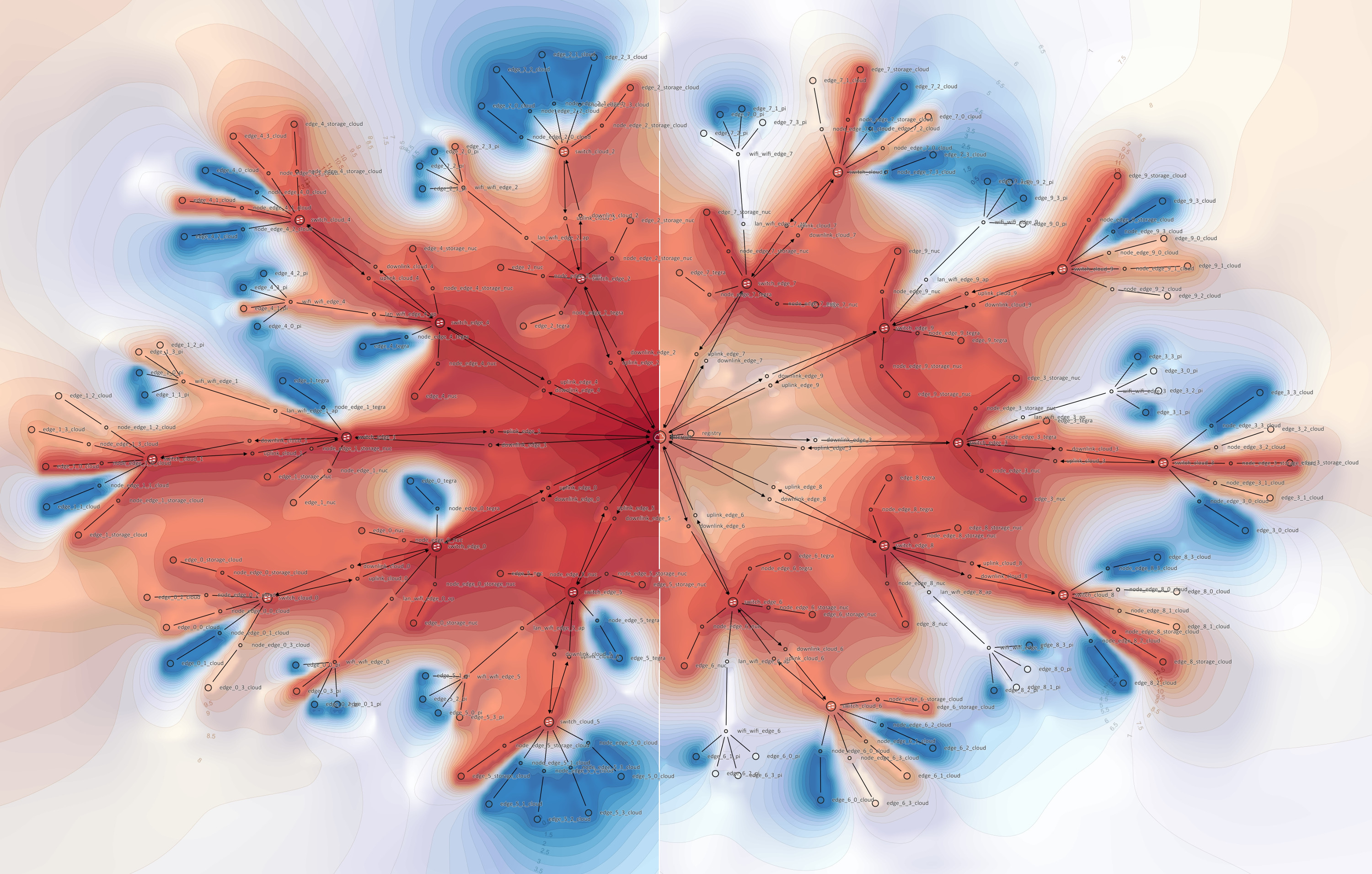Ether is a Python tool to generate plausible edge infrastructure configurations. It arose from the need to evaluate edge computing systems in different infrastructure scenarios where no appropriate testbeds are available.
Some of the uses cases for ether include
- Evaluating resource allocation strategies
- Creating topologies for network simulations
- Infrastructure capacity planing
Creating a topology for an urban sensing scenario, similar to that of the Array of Things could look like this:
topology = Topology()
aot_node = IoTComputeBox(nodes=[nodes.rpi3, nodes.rpi3])
neighborhood = lambda size: SharedLinkCell(
nodes=[
[aot_node] * size,
IoTComputeBox([nodes.nuc] + ([nodes.tx2] * size * 2))
],
shared_bandwidth=500,
backhaul=MobileConnection('internet_chix'))
city = GeoCell(
5, nodes=[neighborhood], density=lognorm((0.82, 2.02)))
cloudlet = Cloudlet(
5, 2, backhaul=FiberToExchange('internet_chix'))
topology.add(city)
topology.add(cloudlet)We have pre-parameterized versions of these scenarios that can be readily used:
topology = Topology()
UrbanSensingTopology().materialize(topology)The following example shows how we used generated topology to evaluate the effect on uplink usage of different resource allocation strategies in an edge computing platform. The node-link diagram of the topology is augmented with a topographic attribute map (rpreiner/tam) that the data exchange in log bytes. The left part of the figure shows the baseline resource allocation strategy, the right part shows our improved strategy that takes data-locality into account. The visualization helps to see how much the backhaul network is relieved, and how data transfer is isolated into edge networks.

- Rausch, T., Lachner, C., Frangoudis, P. A., Raith, P., & Dustdar, S. (2020). Synthesizing Plausible Infrastructure Configurations for Evaluating Edge Computing Systems. In 3rd USENIX Workshop on Hot Topics in Edge Computing (HotEdge 20). USENIX Association. [Preprint]

